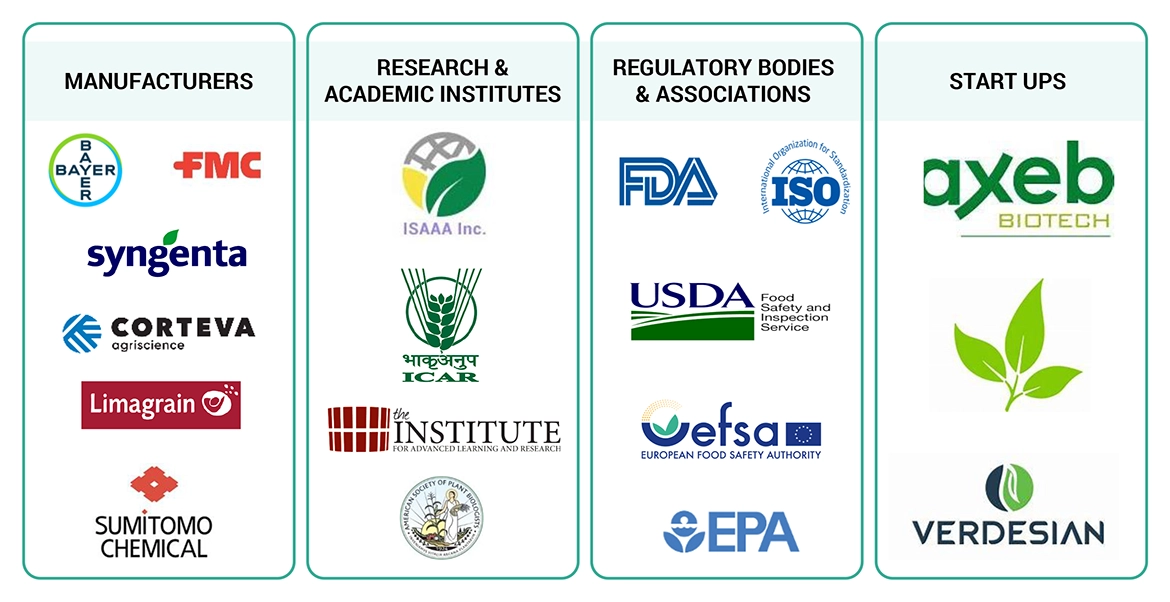The plant biotechnology market is projected to grow from USD 51.73 billion in 2025 to USD 76.79 billion by 2030, registering a CAGR of 8.2% during the forecast period. This growth is fueled by a combination of factors, including rising global food demand, advancements in genetic engineering technologies, increased public and private sector investments, and expanding acceptance of genetically modified crops across multiple regions.
As a pivotal force at the crossroads of agricultural innovation, environmental sustainability, and global food security, the plant biotechnology sector has gained significant momentum over the past decade. Its growth is being propelled by the challenges of a rising global population, climate change, and the need for more efficient and resilient farming practices. By harnessing advanced genetic and molecular tools, plant biotechnology offers innovative solutions to enhance crop yield, improve stress tolerance, and boost nutritional quality, making it a vital component in the future of sustainable agriculture.

Top 10 Companies in the Plant Biotechnology Market
BASF SE (Germany)
Bayer AG (Germany)
Corteva Agroscience (US)
Syngenta AG (Switzerland)
FMC Corporation (US)
UPL (India)
Sumitomo Chemical Co. ,Ltd. (Japan)
Nufarm (Australia)
Pro Farm Group (US)
Limagrain (France)
Download PDF Brochure: https://www.marketsandmarkets.com/pdfdownloadNew.asp?id=225105561
BASF SE (Germany): BASF SE is a major player in the plant biotechnology market, focusing on developing high-performance crop varieties and biotech traits through partnerships and R&D. The company invests heavily in agricultural innovation, particularly in genetic engineering, trait development, and hybrid seed technologies. BASF’s collaboration with institutions and biotech firms enables it to offer solutions that enhance yield, stress tolerance, and disease resistance in crops, thereby supporting sustainable agriculture.
Bayer AG (Germany): Bayer AG, through its Crop Science division, is one of the global leaders in plant biotechnology. The company offers a diverse portfolio of genetically modified seeds and crop protection traits. Bayer’s innovations are aimed at improving crop resilience, optimizing input use, and increasing productivity. With substantial investment in biotech R&D, Bayer is driving precision agriculture and gene editing technologies, such as CRISPR, to address challenges in global food security.
Corteva Agriscience (US): Corteva Agriscience plays a pivotal role in plant biotechnology by integrating advanced seed technologies, trait development, and digital agriculture tools. The company’s biotech innovations focus on pest resistance, herbicide tolerance, and improved nutritional profiles. Corteva has made significant advancements in RNA interference (RNAi) and gene-editing technologies and continues to invest in biotech solutions to promote sustainable farming and improve farmer profitability.
Syngenta AG (Switzerland): Syngenta AG is a key contributor to plant biotechnology, specializing in crop genetics and molecular breeding techniques. The company emphasizes developing GM crops that offer superior resistance to pests, drought, and diseases. Syngenta’s biotech pipeline includes innovations in seed treatments and digital tools, reinforcing its commitment to integrated crop solutions. Strategic collaborations and regulatory advancements further strengthen its position in the global market.
FMC Corporation (US): FMC Corporation is expanding its footprint in the plant biotechnology market by investing in biologicals and biotech-enabled crop protection solutions. While traditionally a chemical-based crop protection company, FMC is increasingly focusing on microbial and biostimulant technologies that support plant health and productivity. The company’s innovation efforts are centered on enhancing crop resilience and soil health through precision biological tools.
UPL (India): UPL is emerging as a strong force in plant biotechnology, particularly in developing nations. The company leverages biotechnology for integrated pest management, seed treatment, and resistance management strategies. UPL’s acquisition of biological R&D assets has strengthened its biotech pipeline, allowing it to offer sustainable farming inputs that include both conventional and biotech-derived solutions. Its OpenAg platform promotes collaborative innovation across the global agri-value chain.
Sumitomo Chemical Co., Ltd. (Japan): Sumitomo Chemical is involved in plant biotechnology through its AgriScience division, developing biotechnology-derived crop protection and breeding products. The company collaborates with biotech startups and research institutes to advance genetically engineered seeds and molecular trait discovery. Sumitomo’s focus lies in enhancing crop yields, managing resistance, and ensuring environmental compatibility through its biotech portfolio.
Request Sample Pages: https://www.marketsandmarkets.com/requestsampleNew.asp?id=225105561
Nufarm (Australia): Nufarm supports the plant biotechnology sector through its strategic investments in biotech seed traits and biologicals. The company has partnered with entities like Cibus to commercialize non-GMO gene editing technologies, such as the Rapid Trait Development System (RTDS). Nufarm is actively involved in bringing forward herbicide-tolerant and climate-resilient crops, especially for key markets in North and South America.
Pro Farm Group (US): Pro Farm Group, a subsidiary of Bioceres Crop Solutions, focuses on biologicals and biotechnology-based crop inputs. It specializes in plant health products derived from microbial and fermentation technologies. Pro Farm’s innovations enhance plant growth, nutrient uptake, and resistance to environmental stress. Its biotech solutions are gaining traction as sustainable alternatives to traditional agrochemicals in global markets.
Limagrain (France): Limagrain is a farmer-owned cooperative and a leading seed company investing significantly in plant biotechnology and molecular breeding. The company’s biotech efforts are geared toward developing hybrid varieties with improved agronomic traits, disease resistance, and climate adaptability. Limagrain integrates genomic selection, trait stacking, and biotech breeding tools to offer cutting-edge solutions in field crops, vegetables, and cereals.
